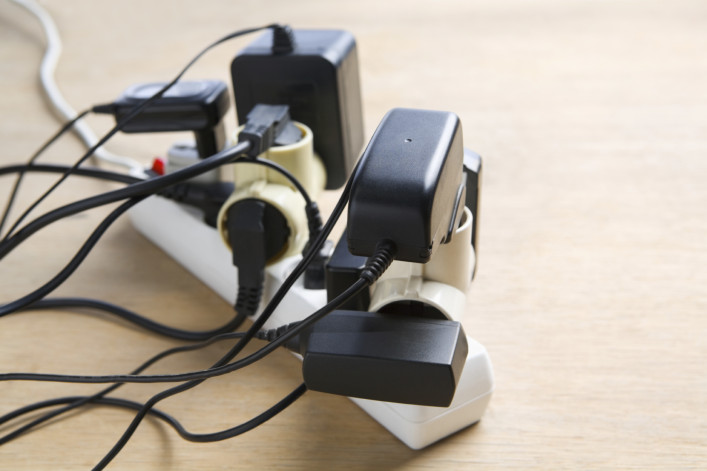The Market
Outlet safety tips for A/C season

Photo above look familiar? Us too, unfortunately. Here's how to make sure your electrical outlet's not a safety hazard, something that's especially important since we're all about to plug in our A/Cs on a regular basis.
- Amp usage is more important than you think: You need to keep an eye on amp usage—not just the number of appliances in use at the same time. The appliances you plug in should use less electrical current than the outlet’s full capacity. If, for example, an outlet accommodates 15 amps, don’t run appliances that add up to more than 12.
- Large-current appliances need their own lines: It is safest to give air conditioners, refrigerators, space heaters and washer/dryers their own lines. So if you need to add a power strip to the room do it on a different outlet than the one that any of these large appliances are plugged into in order to avoid a power surge.
- Stay safe: Make sure that any power strips, surge protectors or extension cords you buy come with the Underwriters Laboratories (UL) Mark, which means the product has been safely tested. In addition, don’t run extension cords near rugs, nor hang them from nails, let them get pressed against the wall by other furniture or put them anywhere they could get wet.
- If you're looking for a new apartment — to buy or rent — pay attention to the number of outlets: Adding outlets is a pricey endeavor. Each dedicated line—which can support three or four outlets—costs between $700 and $1,000 to install depending on how far it is from the circuit breaker in the apartment.
For more, read “Fire Alert: Is Your Electrical Outlet a Hazard? Find Out.”
In Case You Missed It: Every so often, BrickUnderground digs through the archives to find the best advice our experts have shared through the years.
Related:
It’s A/C Season: What You Need to Know to Chill Out, Problem-Free
Brick Underground articles occasionally include the expertise of, or information about, advertising partners when relevant to the story. We will never promote an advertiser's product without making the relationship clear to our readers.






















